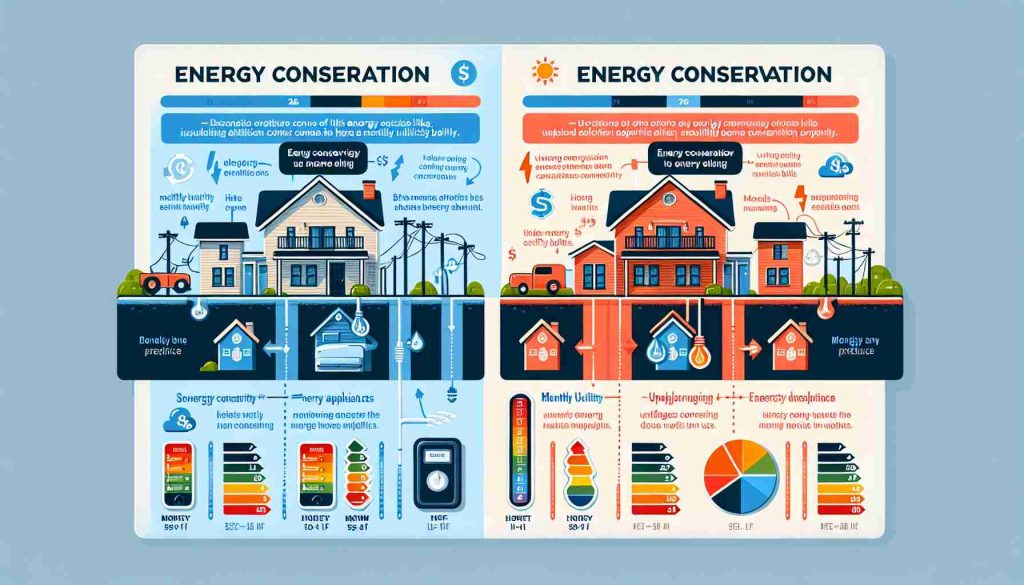Energy prices have been fluctuating, but one thing remains constant – the importance of managing your energy consumption to save money on your monthly bill. By adjusting your energy usage during peak and off-peak hours, you can significantly impact the amount you pay for electricity.
When is the best time to use electricity?
The most cost-effective hours for electricity usage today are between 1:00 and 2:00 AM, with prices as low as 98.96 euros per MWh. Planning activities such as laundry or running the dishwasher during these hours can lead to substantial savings over time.
When should you be mindful of your energy consumption?
For those looking to avoid high electricity prices, extra caution is advised between 7:00 and 8:00 PM, when rates soar to 134.86 euros per MWh. Be strategic with your energy usage during these peak hours to prevent unexpectedly high bills.
Strategies for saving on your electricity bill
To optimize your energy usage, consider investing in programmable appliances that can be scheduled to run during off-peak hours. By being conscious of your energy consumption patterns, you can take control of your monthly expenses and reduce your overall electricity costs.
By understanding the dynamics of electricity pricing throughout the day, consumers can make informed decisions to lower their energy bills while contributing to a more sustainable energy future.
Exploring Deeper into Energy Conservation and Its Impact on Monthly Bills
Energy conservation is not only essential for environmental sustainability but also has a significant impact on the amount you pay for electricity every month. While the previous article touched upon the importance of adjusting energy usage during peak and off-peak hours, there are additional crucial questions and factors to consider when striving to reduce your energy costs.
What role do energy-efficient appliances play in energy conservation?
Investing in energy-efficient appliances can lead to long-term cost savings on your monthly bill. These appliances are designed to consume less energy while still providing the same level of functionality. Look for energy star-rated products, which meet strict energy efficiency guidelines set by the Environmental Protection Agency and the Department of Energy.
Are there government incentives for energy conservation efforts?
In many countries, there are government incentives and rebates available for individuals or businesses that invest in energy-efficient upgrades. These incentives can help offset the initial cost of purchasing energy-efficient appliances or making energy-saving improvements to your home. Check with your local government or utility provider to explore potential programs that could benefit you financially.
Key Challenges and Controversies
One of the key challenges of energy conservation is the initial investment required to purchase energy-efficient appliances or make energy-saving upgrades. While these investments can lead to long-term savings, some individuals may find it challenging to afford the upfront costs.
Controversies surrounding energy conservation often revolve around government regulations and policies aimed at promoting energy efficiency. Some argue that strict regulations may limit consumer choice or drive up the prices of energy-efficient products, while others believe that government intervention is necessary to accelerate the transition to a more sustainable energy future.
Advantages and Disadvantages of Energy Conservation
One of the primary advantages of energy conservation is the potential for significant cost savings on your monthly electricity bill. By being mindful of your energy consumption and implementing energy-saving practices, you can lower your overall expenses and reduce your environmental impact.
On the flip side, a disadvantage of energy conservation is the need for behavior modification and lifestyle adjustments. Consistently monitoring your energy usage and making conscious decisions to reduce consumption can require effort and dedication. Additionally, not all energy-saving measures may be feasible for every individual or household, depending on various factors such as budget constraints or living situations.
In conclusion, energy conservation is a multifaceted topic with various benefits, challenges, and opportunities for individuals looking to lower their monthly energy bills. By taking proactive steps to conserve energy, you can not only save money but also contribute to a more sustainable future for generations to come.
For further information on energy conservation and efficiency programs, visit Energy Department’s official website.










More Stories
Game-Changer in Delivery! Glovo’s Bold Move Stuns Spain!
Maximizing Returns Beyond Treasury Bonds
Exploring the Rising Trends in European Banking